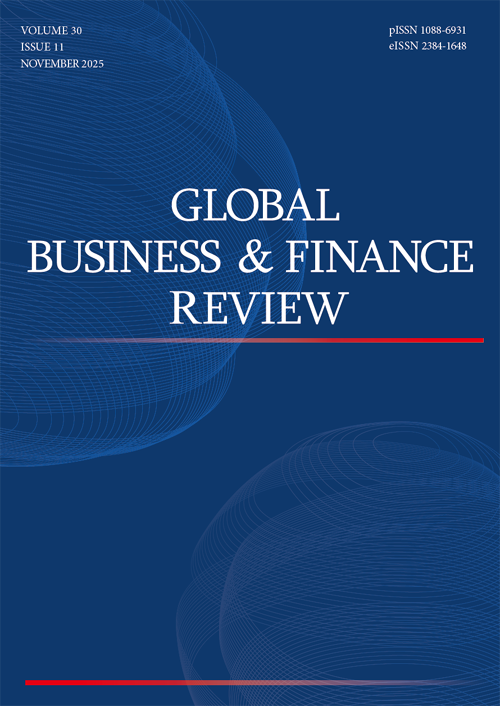학술논문
Education Spending and Energy Consumption in Saudi Arabia: Pathways to Sustainable D evelopment u nder V is ion 2 030
이용수 0
- 영문명
- 발행기관
- People & Global Business Association
- 저자명
- Houcine Benlaria
- 간행물 정보
- 『Global Business and Finance Review』Vol.30 No.11, 64~77쪽, 전체 14쪽
- 주제분류
- 경제경영 > 경영학
- 파일형태
- 발행일자
- 2025.11.30

국문 초록
Purpose: This study examines the dynamic relationships between education spending, energy consumption, and CO₂ emissions in Saudi Arabia under Vision 2030's framework. The research investigates both direct and indirect channels through which educational investments influence environmental quality.
Design/methodology/approach: The research employs an ARDL approach to analyze time series data from 1980 to 2022. The methodology incorporates GDP, industrial development, and agricultural activity as control variables. Unit root tests confirm variable stationarity properties, while bounds testing establishes long-run relationships. The analysis includes comprehensive diagnostic tests to ensure model stability and reliability.
Findings: The empirical analysis reveals significant relationships between the key variables. Specifically, education spending demonstrates positive associations with CO₂ emissions in the short and long run, indicating that increased investment in education may lead to higher emissions. Energy consumption shows a strong positive relationship with emissions, while industrial and agricultural sectors exhibit negative impacts, suggesting efficiency improvements.
Research limitations/implications: Several limitations warrant consideration. The study focuses on aggregate education spending without distinguishing between different educational levels or programs. The period, while extensive, may not fully capture recent Vision 2030 policy impacts. Despite these limitations, the study provides valuable insights for policy alignment between educational investments and environmental objectives.
Originality/value: This research presents the examination of the three-way relationship between education spending, energy consumption, and CO₂ emissions within Saudi Arabia's Vision 2030 framework. The findings provide empirical evidence for policymakers, inspiring them to align educational investments with environmental sustainability objectives in resource-rich economies pursuing economic diversification.
영문 초록
목차
I. Introduction
II. Literature Review
III. Method
IV. Results
V. Discussion
VI. Conclusion
References
키워드
해당간행물 수록 논문
참고문헌
최근 이용한 논문
교보eBook 첫 방문을 환영 합니다!

신규가입 혜택 지급이 완료 되었습니다.
바로 사용 가능한 교보e캐시 1,000원 (유효기간 7일)
지금 바로 교보eBook의 다양한 콘텐츠를 이용해 보세요!


